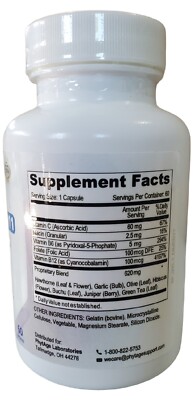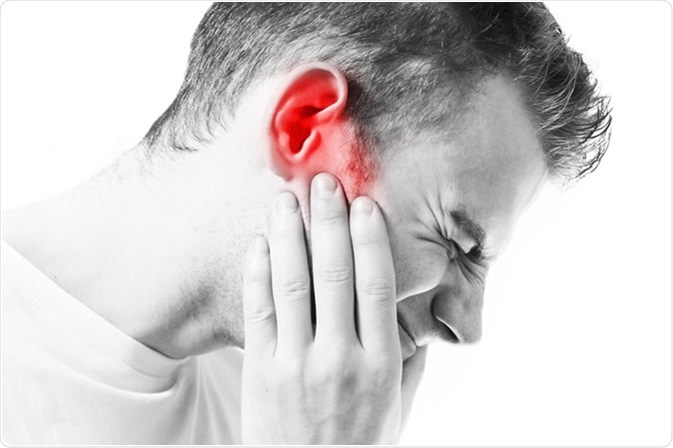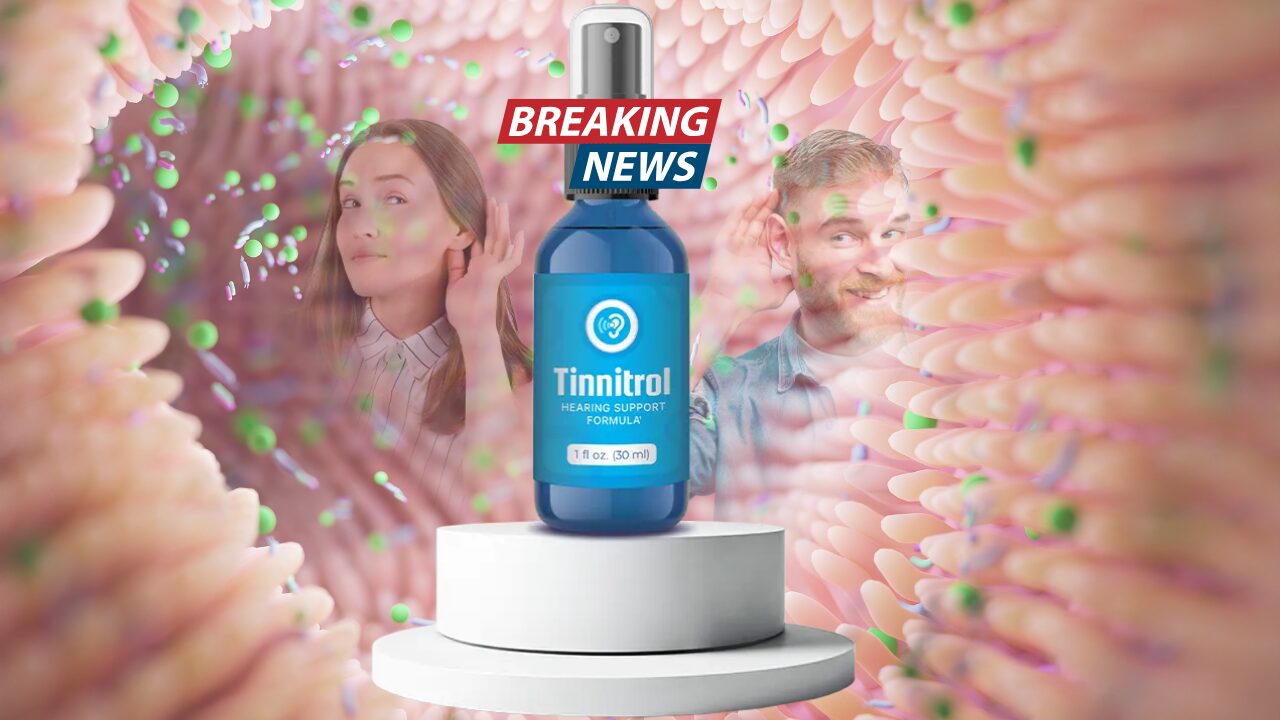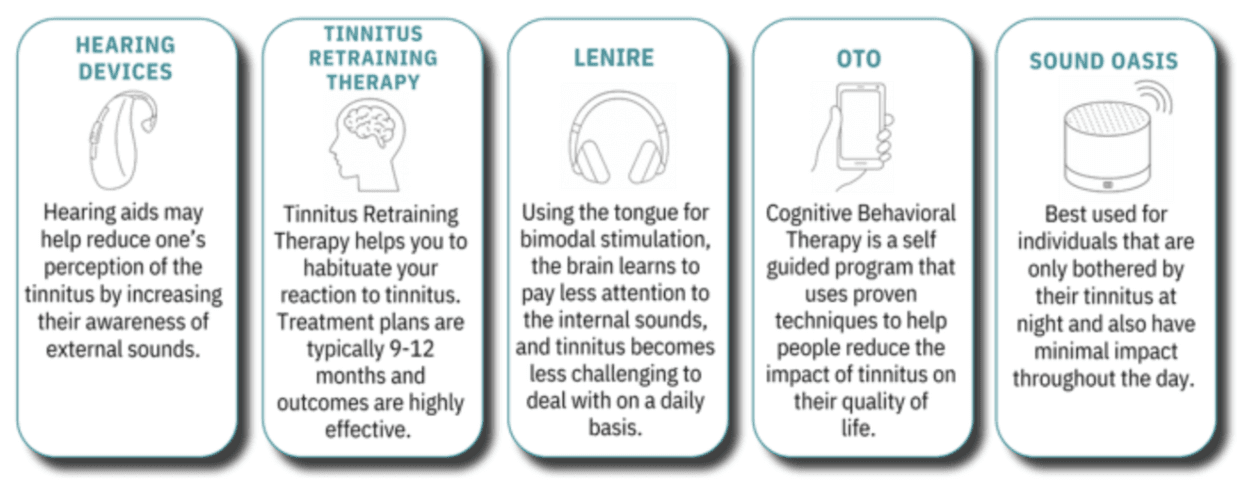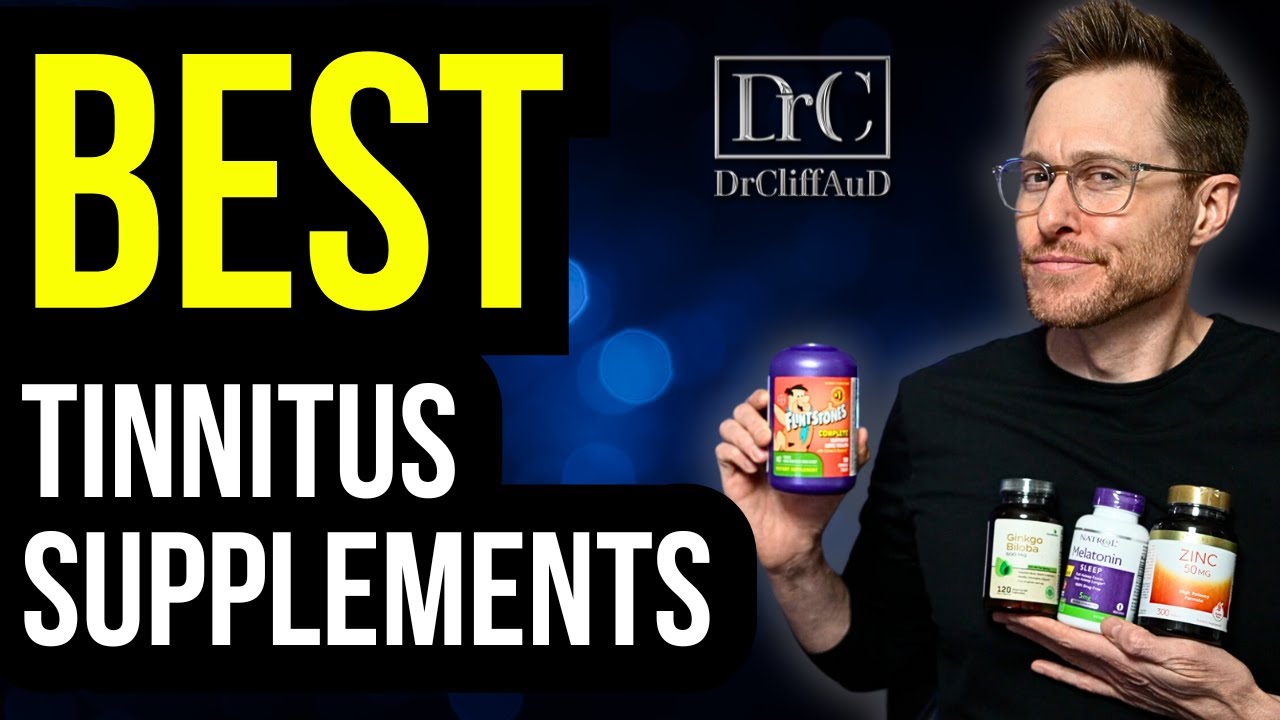Key Takeaways
- Despite widespread marketing claims, most tinnitus supplements lack substantial scientific evidence supporting their effectiveness in reducing ear ringing symptoms
- Ginkgo biloba shows mixed results in clinical studies, with some research suggesting limited benefits while larger trials found it no more effective than placebo
- Supplements that address specific nutritional deficiencies (like vitamin B12 or zinc) may only help the small percentage of tinnitus sufferers whose symptoms stem from those deficiencies
- Most otolaryngologists and audiology specialists do not recommend dietary supplements as primary treatments for tinnitus
- TinnitusRelief Natural Solutions provides evidence-based information on complementary approaches to tinnitus management that focus on comprehensive, personalized care rather than one-size-fits-all supplement regimens
That constant ringing in your ears has you desperately searching for relief. Amid your late-night internet searches, supplement companies promise miraculous results with proprietary blends of herbs, vitamins, and minerals. But before you reach for your credit card, let’s separate fact from fiction about tinnitus supplements.
Tinnitus—that persistent ringing, buzzing, or hissing sound only you can hear—affects roughly 10-15% of adults. While numerous supplements claim to reduce or even eliminate these symptoms, the scientific community remains largely skeptical. TinnitusRelief Natural Solutions focuses on providing accurate, research-based information about tinnitus management options, helping sufferers understand which approaches are supported by evidence and which are primarily marketing hype.
The desperation that comes with chronic tinnitus makes sufferers particularly vulnerable to exaggerated claims. “If I thought these products worked, I would offer them in my clinic in a heartbeat,” says audiologist Jeff Carroll, director of the Tinnitus Treatment Center at UC Irvine. Yet most specialists don’t recommend supplements because current evidence simply doesn’t support their widespread use.
Tinnitus Supplements: What the Research Actually Reveals
“Is There a Magic Pill? | American …” from www.ata.org and used with no modifications.
The science surrounding tinnitus supplements presents a complex picture. While some small studies show modest benefits for certain ingredients, larger, more rigorous clinical trials typically find minimal effects beyond placebo. The Clinical Practice Guideline from the American Academy of Otolaryngology-Head & Neck Surgery explicitly states that clinicians should not recommend dietary supplements for tinnitus treatment.
Many supplements carry carefully worded disclaimers stating they are “not intended to diagnose, treat, cure or prevent any disease”—language required because the FDA hasn’t evaluated these products for treating tinnitus. This regulatory gap allows companies to market products aggressively while avoiding accountability for specific medical claims.
A troubling pattern emerges when examining tinnitus supplement pricing. Research shows many products consist of common, inexpensive vitamins and minerals marketed specifically for tinnitus at premium prices. This price inflation exploits consumers’ desperation for relief, charging substantially more for ingredients that could be purchased separately at a fraction of the cost. For a deeper understanding of how different supplements manage tinnitus, it is important to evaluate their actual benefits and limitations.
The Truth About Popular Tinnitus Supplement Ingredients
“TINNITUS 911 Ear Ringing Relief Reduce …” from www.ebay.com and used with no modifications.
Understanding the evidence behind common tinnitus supplement ingredients helps consumers make informed decisions rather than purchases based solely on marketing claims. Let’s examine what science actually reveals about these frequently touted ingredients.
Ginkgo Biloba: Mixed Evidence at Best
Ginkgo biloba stands as perhaps the most studied supplement for tinnitus, with proponents claiming it improves circulation to the inner ear. A 1986 French study of 103 patients with recent-onset tinnitus reported that half experienced relief after taking ginkgo supplements for 70 days. However, larger subsequent studies tell a different story.
A comprehensive 2001 study involving more than 1,100 tinnitus sufferers in England found ginkgo performed no better than placebo. This contradiction highlights the inconsistent nature of research in this area. The German Commission E, generally respected for herbal medicine assessments, suggests 240mg of ginkgo twice daily might help some tinnitus sufferers, but mainstream medical organizations remain unconvinced.
Products like Arches Tinnitus Formula prominently feature ginkgo biloba (120mg per capsule) along with zinc and garlic extract, recommending two capsules twice daily. While some users report benefits, clinical evidence supporting this specific formulation remains limited.
Zinc Supplements: Limited Support from Clinical Studies
Zinc deficiency has been theoretically linked to tinnitus in some individuals, leading to its inclusion in many tinnitus supplements. The mineral plays important roles in nerve transmission and cochlear function. However, only those with confirmed zinc deficiency might reasonably expect benefits from supplementation.
Studies examining zinc for tinnitus show inconsistent results. While some small trials suggest modest improvements in specific populations (particularly older adults with low zinc levels), larger studies have failed to demonstrate significant benefits for the general tinnitus population. Despite this limited evidence, zinc remains a common ingredient in multi-component tinnitus formulations.
Vitamin B12: Helpful Only for Deficiency-Related Tinnitus
Vitamin B12 deficiency can cause neurological symptoms, including tinnitus in some cases. For individuals whose tinnitus stems from this specific deficiency, B12 supplementation may provide relief. However, for the vast majority of tinnitus sufferers with normal B12 levels, supplements offer little benefit.
Magnesium: Potential Benefits for Noise-Induced Tinnitus
Magnesium supplementation shows some promise specifically for noise-induced tinnitus. Research suggests magnesium may protect against noise-related hearing damage when taken preventatively or shortly after exposure. Some studies indicate magnesium might reduce the severity of tinnitus in patients with noise-induced hearing loss, though benefits for other forms of tinnitus remain unproven.
The protective mechanism appears related to magnesium’s role in regulating cellular calcium channels and reducing the excitotoxicity that can damage delicate inner ear structures. However, most clinical trials examining magnesium for established chronic tinnitus show limited effectiveness, suggesting its value may be primarily preventative rather than therapeutic for long-standing cases.
Antioxidants: Theoretical Benefits vs. Clinical Reality
Many tinnitus supplements contain antioxidants like vitamins A, C, E, and alpha-lipoic acid based on the theory that oxidative stress contributes to inner ear damage. While laboratory studies demonstrate that antioxidants can protect auditory cells from damage, clinical evidence specifically for tinnitus relief remains sparse.
Research suggests antioxidants might help prevent certain forms of hearing loss, but their ability to reduce existing tinnitus symptoms lacks robust support. Despite theoretical promise, most antioxidant studies for tinnitus show minimal improvements beyond what placebo provides. This disconnect between cellular research and clinical outcomes highlights the complex nature of tinnitus as a symptom with multiple potential causes. For those exploring alternative management strategies, understanding progressive tinnitus management can offer additional insights.
Why Most Tinnitus Supplements Don’t Deliver on Their Promises
“Does Tinnitus Affect the Brain?” from www.news-medical.net and used with no modifications.
The disappointing reality behind most tinnitus supplements stems from several key factors. First, tinnitus isn’t a single condition but a symptom with numerous potential causes—from hearing loss to medication side effects, circulatory problems to stress. No single supplement can address all these underlying mechanisms, making broad claims inherently problematic. For those looking for alternative solutions, tinnitus masking hearing aids might offer some relief by addressing specific symptoms.
Second, the subjective nature of tinnitus makes it particularly susceptible to placebo effects. Many people report temporary improvement when trying any new treatment, regardless of its actual efficacy. This placebo response often fades over time, leading to a cycle of trying increasingly expensive or exotic supplements in search of lasting relief.
Finally, many supplement manufacturers cherry-pick favorable preliminary research while ignoring larger, more rigorous studies that show minimal benefits. This selective interpretation creates a false impression of scientific support that doesn’t align with the medical consensus or clinical practice guidelines.
Marketing Claims vs. Scientific Evidence
The disconnect between tinnitus supplement marketing and scientific evidence creates significant challenges for consumers. Supplement websites often feature compelling narratives about ancient remedies, proprietary formulations, or breakthrough discoveries that mainstream medicine has supposedly overlooked. These stories appeal emotionally to sufferers desperate for solutions, yet the role of supplements in managing tinnitus is often not as clear-cut as advertised.
Meanwhile, researchers at respected institutions continue finding limited evidence for supplement efficacy. Dr. Billy Martin, a specialist in otolaryngology and director of the Tinnitus Clinic at Oregon Health & Science University, notes the substantial gaps in scientific understanding of tinnitus and confirms there’s currently no good evidence that any supplement consistently helps most patients.
This contradiction leaves consumers caught between hopeful marketing messages and cautious medical guidance. Without specialized knowledge to evaluate clinical studies, many people reasonably assume that heavily advertised products must work, especially when testimonials seem compelling.
The Placebo Effect in Tinnitus Treatment
The placebo effect plays a particularly significant role in tinnitus treatment evaluations. Studies consistently show that 30-40% of tinnitus sufferers report improvement when taking placebos—inert substances with no active ingredients. This powerful psychological response stems from the brain’s complex relationship with expectation, attention, and symptom perception.
Because tinnitus perception involves both auditory and emotional processing in the brain, positive expectations can temporarily reduce symptom awareness or distress. For supplement manufacturers, this placebo response creates an illusion of effectiveness even for products without physiological benefits. Positive reviews and testimonials often reflect this placebo effect rather than actual ingredient efficacy.
The challenge for researchers and clinicians lies in distinguishing true therapeutic effects from placebo responses. This requires carefully designed studies with adequate controls, sufficient participant numbers, and appropriate statistical analysis—standards that most supplement “research” fails to meet.
Regulatory Gaps in Supplement Marketing
Unlike prescription medications, dietary supplements face minimal regulatory oversight regarding efficacy claims. The FDA primarily monitors supplements for safety rather than effectiveness, creating a significant gap in consumer protection. Manufacturers can market products for “ear health” or “auditory function” without demonstrating they actually reduce tinnitus symptoms.
This regulatory environment enables problematic marketing practices that would be prohibited for prescription drugs. Supplement companies can imply benefits through customer testimonials, vague wording, or “structure/function” claims without substantiating actual results. The small-print disclaimer that products are “not intended to diagnose, treat, cure or prevent any disease” often appears in stark contrast to the bold marketing claims elsewhere on packaging and websites.
Industry watchdogs have documented numerous instances of tinnitus supplement companies making unsubstantiated claims or exaggerating preliminary research findings. These practices exploit the vulnerability of tinnitus sufferers while operating in the gray areas of regulatory oversight.
4 Red Flags in Tinnitus Supplement Marketing
“Tinnitrol Tinnitus Spray: EXPOSING Fake …” from www.morningstar.com and used with no modifications.
Being an informed consumer means recognizing warning signs that a tinnitus supplement may be overpromising and underdelivering. Watch for these common red flags that often indicate marketing has outpaced evidence.
1. “Cure” or “Eliminate” Language
Any supplement claiming to “cure,” “eliminate,” or “end” tinnitus should immediately raise suspicion. These absolute terms contradict the medical understanding of tinnitus as a complex symptom that rarely disappears completely, especially in chronic cases. Legitimate treatments typically aim to reduce symptom severity or improve coping rather than promising complete elimination.
2. Testimonials Without Clinical Data
Relying heavily on testimonials rather than peer-reviewed clinical studies is a classic warning sign. While personal stories can be compelling, they cannot replace systematic research. Anecdotal success stories often represent placebo responses, spontaneous symptom fluctuations, or the small percentage of users who genuinely benefit from a product while the majority experience no improvement. Companies highlighting dramatic personal transformations while downplaying or omitting clinical trial results typically have weak scientific support.
3. “Doctor-Recommended” Without Specifics
Claims that products are “doctor-recommended” or “clinically proven” deserve scrutiny. Legitimate medical endorsements should specify which clinical studies support the product and which medical specialists or institutions endorse it. Vague references to unnamed doctors or unspecified clinical trials often mask a lack of substantial medical support. The American Academy of Otolaryngology specifically advises against recommending supplements for tinnitus, making broad claims of specialist support particularly questionable.
4. Money-Back Guarantees as Marketing Tactics
While money-back guarantees might seem consumer-friendly, they often serve as marketing tactics rather than quality assurances. Companies know that most dissatisfied customers never complete the often-complicated refund process. These guarantees enable bolder marketing claims while creating an illusion of risk-free trial. Additionally, the temporary placebo effect many users experience during initial use often extends beyond the typical 30-day guarantee period, further reducing refund requests despite long-term ineffectiveness.
Evidence-Based Approaches That Actually Help Tinnitus
“Tinnitus Treatment Experts | Colorado …” from myhearingconsultants.com and used with no modifications.
While most supplements lack strong evidence, several approaches to tinnitus management have demonstrated effectiveness in rigorous clinical studies. Understanding these evidence-based options helps sufferers make informed decisions about where to invest their time, energy, and resources for symptom relief.
The most effective tinnitus management strategies typically involve multiple complementary approaches rather than single interventions. This reflects the complex nature of tinnitus and the need to address both its auditory and psychological aspects. Medical professionals increasingly recommend personalized treatment plans that combine several evidence-based techniques.
Sound Therapy Options
Sound therapy uses external noise to alter perception of or reaction to tinnitus. Various forms include hearing aids with masking features, white noise machines, and specialized sound generators that deliver customized acoustic stimulation. Research consistently shows that appropriate sound therapy can reduce tinnitus awareness and related distress. Modern approaches like notched music therapy, which filters out frequencies matching the patient’s tinnitus, show particular promise in helping the brain habituate to unwanted sounds.
Cognitive Behavioral Therapy Results
Cognitive Behavioral Therapy (CBT) stands as one of the most thoroughly validated approaches for tinnitus management. This therapeutic technique helps patients identify and change negative thought patterns about tinnitus, reducing emotional distress and improving quality of life. Multiple systematic reviews and meta-analyses confirm CBT’s effectiveness in reducing tinnitus-related disability and distress, even when the actual sound perception remains unchanged. Unlike supplements, CBT addresses how the brain processes and responds to tinnitus rather than attempting to alter the underlying auditory mechanisms.
Hearing Aids for Tinnitus Relief
For the many tinnitus sufferers with concurrent hearing loss, properly fitted hearing aids often provide significant symptom relief. By amplifying environmental sounds, hearing aids reduce the contrast between tinnitus and background noise, making the unwanted sounds less noticeable. Modern devices often include specialized tinnitus management features like customizable sound generators. Research consistently shows that addressing hearing loss can substantially reduce tinnitus severity and impact, making audiological evaluation an essential step for many patients.
Lifestyle Modifications That Reduce Symptoms
Several lifestyle factors influence tinnitus severity. Stress management techniques (including meditation, yoga, and regular exercise) consistently demonstrate benefits in reducing tinnitus distress. Sleep hygiene improvements help break the vicious cycle of tinnitus-disrupted sleep and stress. Limiting caffeine, alcohol, and sodium intake benefits some patients, as does protecting hearing from further damage through appropriate noise protection. While these approaches rarely eliminate tinnitus completely, they often reduce symptom intensity and impact more effectively than supplements.
When Supplements Might Be Worth Trying
“Best Tinnitus Supplements – YouTube” from www.youtube.com and used with no modifications.
Despite the generally limited evidence for tinnitus supplements, certain circumstances may justify cautious experimentation with specific nutritional interventions. The key lies in realistic expectations, targeted approaches based on individual health factors, and integration with evidence-based management strategies.
Supplements should generally be considered complementary rather than primary treatments. Working with healthcare providers who can monitor for interactions and assess effectiveness helps maximize potential benefits while minimizing risks of adverse effects or delayed access to more effective treatments.
Addressing Underlying Nutritional Deficiencies
For individuals with confirmed nutritional deficiencies linked to tinnitus, targeted supplementation makes sense. Vitamin B12 deficiency, particularly common in older adults and vegetarians, can contribute to neurological symptoms including tinnitus. Similarly, zinc deficiency might exacerbate tinnitus in some individuals. Blood testing can identify these specific deficiencies, allowing for targeted supplementation rather than trial-and-error with multi-ingredient formulations. This personalized approach addresses underlying physiological factors rather than simply hoping a general tinnitus supplement might help.
Supplements with the Strongest (Though Limited) Evidence
Among commonly promoted tinnitus supplements, ginkgo biloba has the most extensive research history, though results remain mixed. For those wishing to try supplements, standardized ginkgo extracts (containing 24% flavone glycosides and 6% terpene lactones) at doses of 120-240mg daily have the strongest, albeit limited, supporting evidence. Most studies showing benefit used this standardized form for at least 8-12 weeks.
Magnesium supplementation shows promise primarily for noise-induced or recent-onset tinnitus rather than long-standing cases. Typical study protocols use 400-500mg daily of magnesium for preventative purposes or early intervention after noise exposure. Both ginkgo and magnesium have relatively good safety profiles when used appropriately, though they can interact with certain medications.
Setting Realistic Expectations
When trying supplements for tinnitus, setting realistic expectations is crucial for both psychological wellbeing and financial protection. Even the most promising supplements typically produce modest benefits in a minority of users rather than dramatic improvements for everyone. A reasonable approach involves setting specific, measurable goals (such as reducing symptom intensity by 20% or improving sleep quality), limiting experimentation to 2-3 months per supplement, and keeping a symptom journal to objectively track changes. This structured method helps distinguish genuine benefits from placebo effects or natural symptom fluctuations.
Frequently Asked Questions
Navigating the world of tinnitus supplements generates many questions from patients seeking relief. These answers reflect the current scientific understanding and clinical experience with various supplemental approaches to tinnitus management, including insights from progressive tinnitus management.
While individual experiences vary considerably, these evidence-based responses can help guide decision-making about whether supplements deserve a place in your tinnitus management plan. Remember that consulting healthcare providers before starting any supplement regimen remains essential, particularly for those with underlying health conditions or taking medications.
Can any supplement completely cure tinnitus?
No supplement has been scientifically proven to completely cure tinnitus. Despite marketing claims suggesting otherwise, complete elimination of tinnitus through supplementation remains unsupported by credible research. Tinnitus typically represents a complex neurological condition rather than a simple nutritional deficiency, explaining why single-ingredient solutions rarely resolve symptoms entirely. More realistic goals include moderate symptom reduction, improved coping ability, and better management of factors that worsen tinnitus perception.
How long should I try a tinnitus supplement before knowing if it works?
Most research protocols evaluating supplements for tinnitus run for 8-12 weeks, suggesting this timeframe provides reasonable opportunity to detect meaningful benefits. Shorter trials may miss delayed effects, while extending beyond 3 months without noticeable improvement rarely yields later success. The placebo effect typically peaks within the first month and gradually diminishes, making the second and third months particularly important for distinguishing genuine benefits from psychological responses.
Keeping a structured symptom journal helps objectively evaluate supplement effects. Record daily tinnitus intensity (1-10 scale), duration of awareness, emotional distress level, and interference with activities. Weekly review of these records provides clearer insight than relying on general impressions.
If a supplement shows no measurable benefit after 8-12 weeks of consistent use, continuing longer rarely produces different results. Resources might better serve you directed toward evidence-based interventions like cognitive behavioral therapy or appropriate hearing technologies.
- Week 1-2: Establish baseline symptom patterns
- Weeks 3-4: Early effects (often influenced by placebo response)
- Week 5-8: Period when genuine physiological effects typically emerge
- Weeks 9-12: Confirmation of sustained benefits beyond placebo effect
- Beyond 12 weeks: Diminishing returns for continued experimentation
Are expensive tinnitus supplements better than cheaper ones?
Price rarely correlates with effectiveness in tinnitus supplements. Research examining supplement composition shows many expensive products contain similar or identical ingredients to more affordable alternatives. The premium pricing typically reflects marketing costs, profit margins, and specialized packaging rather than superior formulation or ingredient quality. Some of the most heavily marketed tinnitus supplements cost 5-10 times more than generic equivalents with identical active ingredients.
For those determined to try supplementation, comparing ingredient labels between specialized tinnitus formulations and standard nutritional supplements often reveals substantial savings opportunities. For example, standard ginkgo biloba supplements meeting European standardization requirements typically cost significantly less than specialized tinnitus formulations containing the same extract, despite identical active ingredients. Similarly, basic magnesium, zinc, or B-vitamin supplements usually cost a fraction of specialized tinnitus blends featuring these ingredients.
Can natural supplements interact with my other medications?
Yes, many natural supplements can interact significantly with prescription and over-the-counter medications. Ginkgo biloba, among the most common tinnitus supplement ingredients, can increase bleeding risk when combined with blood thinners like warfarin, aspirin, or clopidogrel. Magnesium supplements may interfere with certain antibiotics and blood pressure medications. Even seemingly innocuous vitamins can alter medication effectiveness—vitamin B6 affects certain Parkinson’s disease medications, while vitamin K can counteract warfarin. Always consult healthcare providers before combining supplements with medications, as natural origin doesn’t guarantee safety in combination therapies.
Why do some people report benefits from supplements if the science doesn’t support them?
Several factors explain positive reports despite limited scientific support. The placebo effect generates real perceptual changes for many tinnitus sufferers—the expectation of improvement actually alters how the brain processes tinnitus signals, temporarily reducing symptom awareness. This response can produce genuine (though often temporary) relief even from completely inert substances.
Tinnitus naturally fluctuates in intensity for most people, with symptoms occasionally improving coincidentally after starting supplements. Without controlled comparison groups, these natural variations may be mistakenly attributed to supplement effects. Additionally, some individuals may have specific nutritional deficiencies or metabolic factors that make them uniquely responsive to certain supplements, even if the general tinnitus population shows minimal benefit in clinical trials.
Ultimately, individual biology varies tremendously. While population-level studies provide our best guide to general effectiveness, they cannot predict with certainty how specific individuals might respond. This biological variability, combined with powerful psychological factors in symptom perception, explains the persistent gap between anecdotal reports and clinical research findings.


